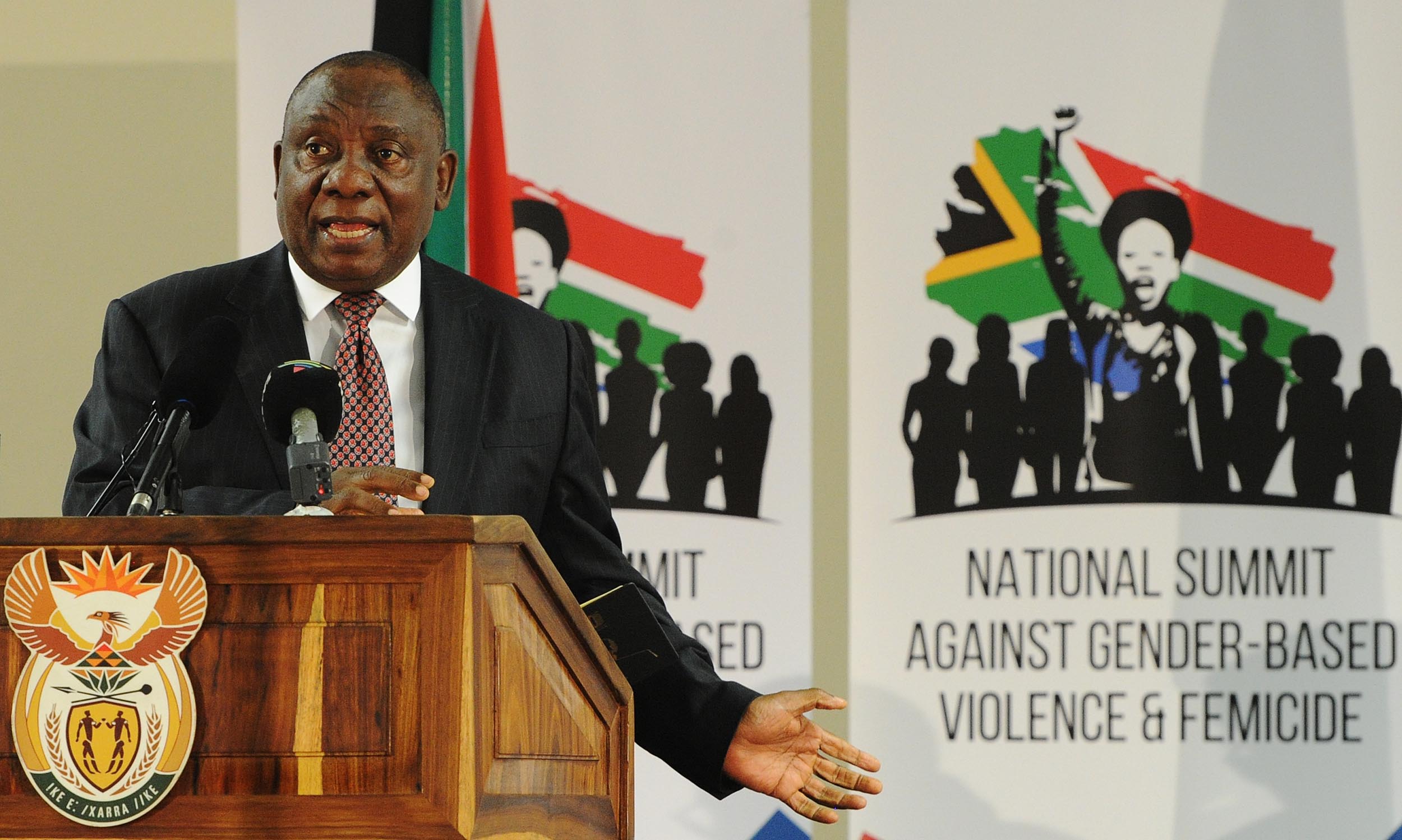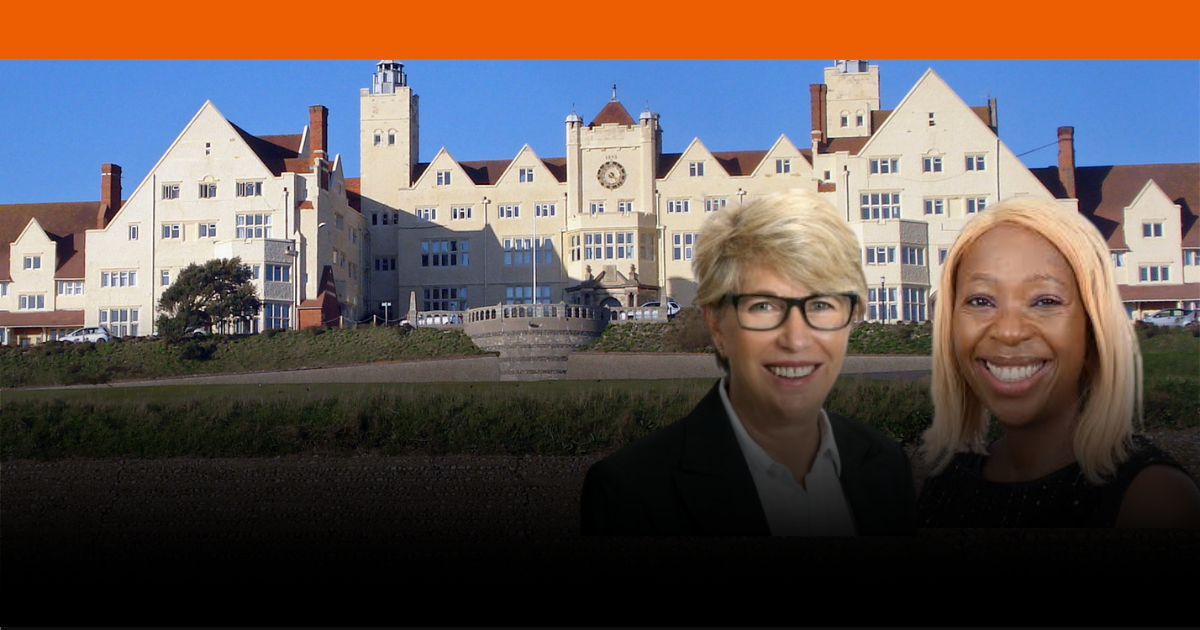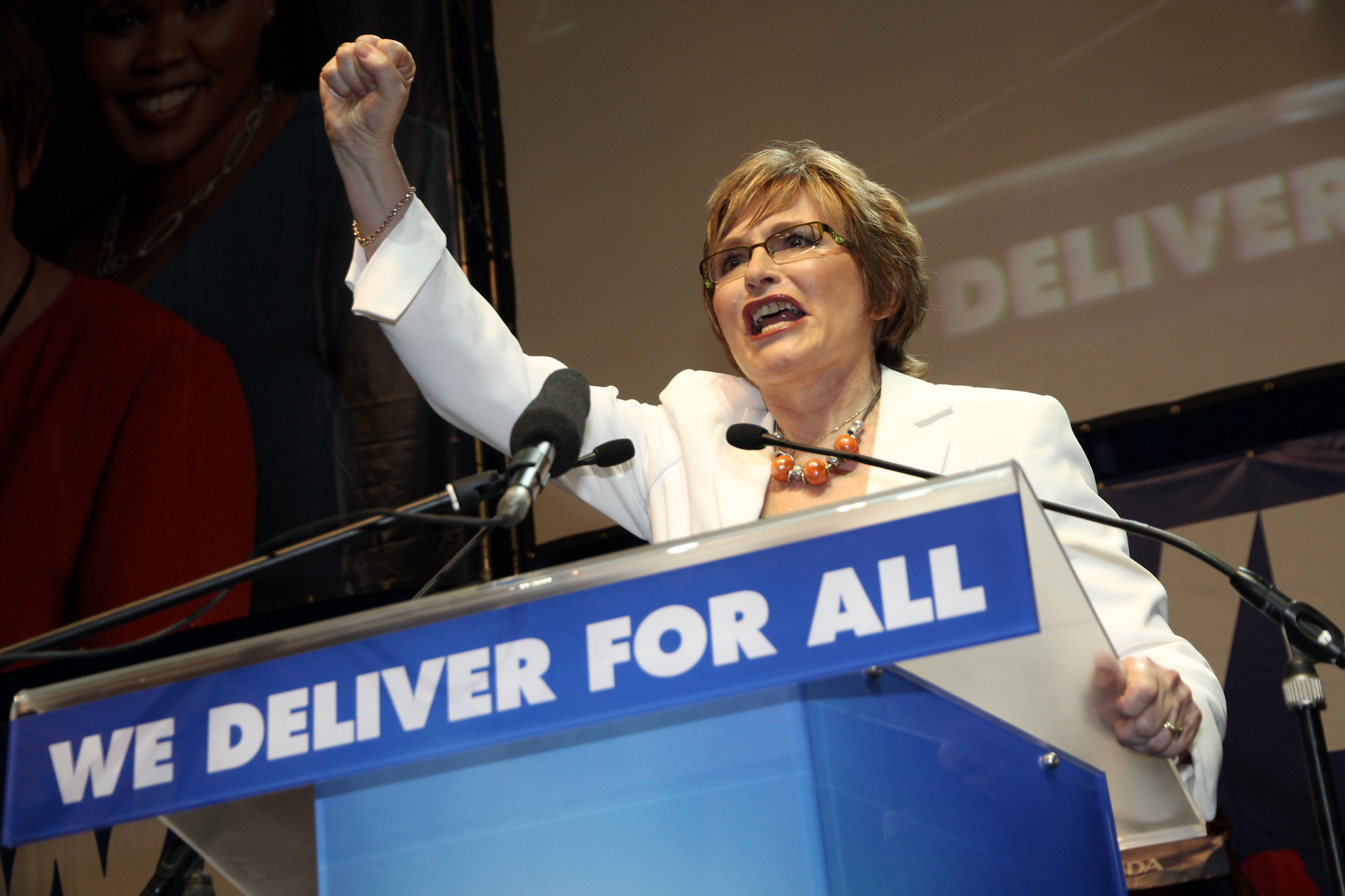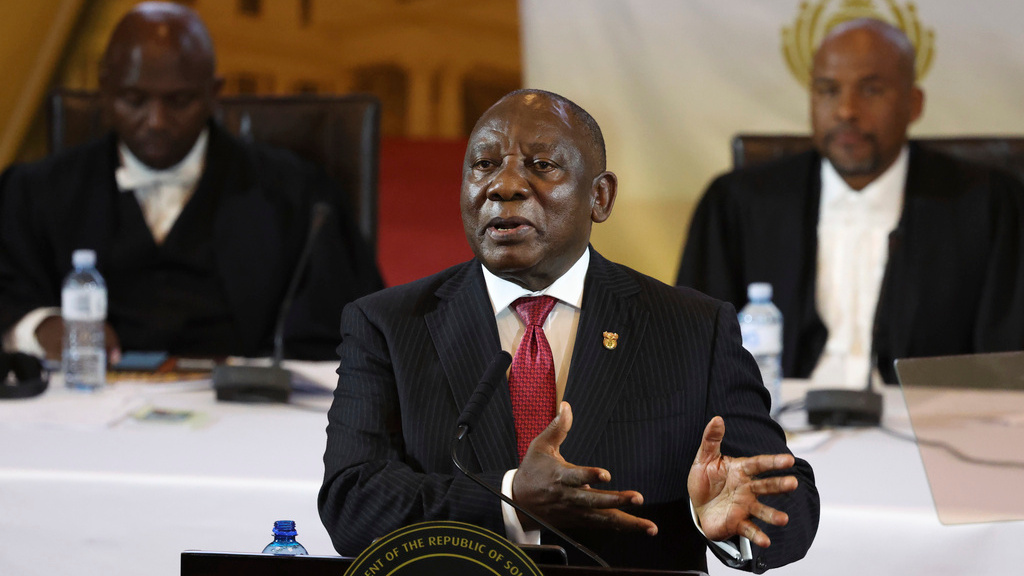Three men representing the three big parties sat in a room to debate gender-based violence (GBV) in South Africa…While this may sound like the start of a bad joke, this was the reality at The Big Debate last week.
In this highly anticipated debate, representatives from the African National Congress (ANC), the Democratic Alliance (DA), and the Economic Freedom Fighters (EFF) faced the public’s questions on their plans if they were to win the elections on 29 May.
Unfortunately for viewers eager to get some answers to help guide where they will place their all-important X, the big three spent most of the evening bickering and throwing insults and accusations at one another. While the debate was definitely not short on entertainment, when it came to the big issues, all three parties showed how politicians can be far removed from the people they are set to represent.
This was the case when three men were left to debate the epidemic of violence and abuse faced by women and children in South Africa.
The debate’s tone was set by a poignant testimony from a woman in the audience, highlighting systemic failures in addressing GBV. She raised the question as to why perpetrators often receive bail and light sentences despite policies intended to protect women. “As women, we need protection in this country,” she said.
Former Mayor of Tshwane, Solly Msimanga, representing the DA, seemed to avoid direct questions about his party’s GBV policies, instead choosing to address comments about the DA’s racial composition. Msimanga’s critique of the ANC’s handling of infrastructure and forensic backlogs, though valid, failed to provide a reassuring plan to combat GBV. “When women are raped, we have a huge backlog in South Africa. Cases are not even making their way to court,” he stated, pointing fingers at the ANC representative.
Dr. Aaron Motsoaledi spoke for the ANC. Although it could be argued that Motsoaledi, as the Minister of Home Affairs, was out of his depth when commenting on the ANC’s plans to address GBV, he stated in his personal capacity, “I fully support no bail for GBV perpetrators and strict sentences, because we can’t have women in this country not living in peace”. He shifted blame onto judges and magistrates for lenient sentences, a deflection that did little to address the systemic issues within the ANC’s governance. Again, the attempt to address the issue of GBV was underwhelming.
Floyd Shivambu of the Economic Freedom Fighters (EFF) chose to address the concerns for women’s safety by pinpointing the failures of the criminal justice system in supporting GBV victims. “The criminal justice system in South Africa is not conducive for victims of gender-based violence to report their cases in a meaningful way,” he noted, stressing the need for a supportive environment for victims. This statement fell flat when a member of the audience questioned the EFF’s treatment of its female party members. In March, it was revealed that the party fined MP Naledi Chirwa for not attending a parliamentary sitting due to her infant daughter falling ill.
In the background of political parties wrangling for attention, a woman shared her story of losing her aunt to GBV, only to see the murderer receive a mere five-year sentence and later escape from prison. Her plea for accountability and protection highlighted the pervasive fear and trauma experienced by GBV victims and their families. Her testimony was a stark reminder of the real-world consequences of political inaction, yet it was quickly glossed over as the debate descended back into political squabbling.
Despite the gravity of the topic, the debate quickly devolved into arguing amongst the party representatives, each more focused on scoring political points than addressing the pressing issue of GBV. This constant back-and-forth overshadowed the critical questions from the audience.
Lindiwe Mazibuko, co-founder and CEO of Future Elect, was the first to shift the attention back to GBV, scolding the party representatives for their numb response to the testimony. “We moved very quickly and like we are numb as a society, off a very painful testimony about how broken our society is. About how women and children are disposable, about how their bodies are treated as objects and they are constantly subjected to violence.”
Mazibuko made a compelling case for more women in decision-making roles. She argued that policies addressing GBV would be more effective if crafted by those who understand the issue intimately. “A lot of the policy challenges we are talking about here are solved better when women are around the decision-making table, making laws, making regulations, making decisions.”
“We’re moving into an era of collaboration and it’s not just a competition, it is an opportunity for us to think about how we are going to start to rebuild a fundamentally broken society,” said Mazibuko, criticising the incessant showmanship between parties that overshadowed the real issues at hand.
“We should not have to listen to women who have suffered in unimaginable ways, just to get the attention of the leaders who are supposed to be representing them,” said Mazibuko.
As South Africa approaches one of its most crucial elections, the lacklustre performance of its major political parties on GBV leaves much to be desired. The Big Debate exposed not only the systemic failures in addressing this critical issue but also the need for a more inclusive and empathetic approach to governance.
For many South Africans, particularly women, the debate underscored a painful reality: without substantial change and genuine commitment, female voices and safety will continue to be marginalised. The night ended not with answers but with more questions and a palpable sense of disappointment as political theatrics overshadowed the urgent need for solutions.
The Big Debate is a South African current affairs show airing its 12th season. This town hall debate show has been on air for 15 years, and this season coincides with the national elections. Explain has partnered up with The Big Debate to cover the series as it unpacks these issues.
Emma is a freshly graduated Journalist from Stellenbosch University, who also holds an Honours in history. She joined the explain team, eager to provide thorough and truthful information and connect with her generation.




